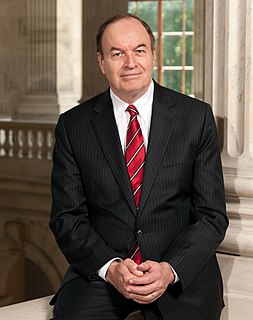A Quote by Rick Perry
We will reverse course on the heavy hand of regulation, discarding Dodd-Frank and any other regulations that advance a political agenda at the expense of jobs and investment on Main Street.
Related Quotes
Dodd-Frank greatly expanded the regulatory reach of the Federal Reserve. It did not, however, examine whether it was correctly structured to account for these new and expansive powers. Therefore, the Committee will be examining the appropriateness of the Fed's current structure in a post Dodd-Frank world.
I want regulation. I want to protect our environment. I want regulations for safety. I want all of the regulations that we need, and I want them to be so strong and so tough. But we don't need 75 percent of the repetitive, horrible regulations that hurt companies, hurt jobs, make us noncompetitive overseas with other companies from other countries.


































